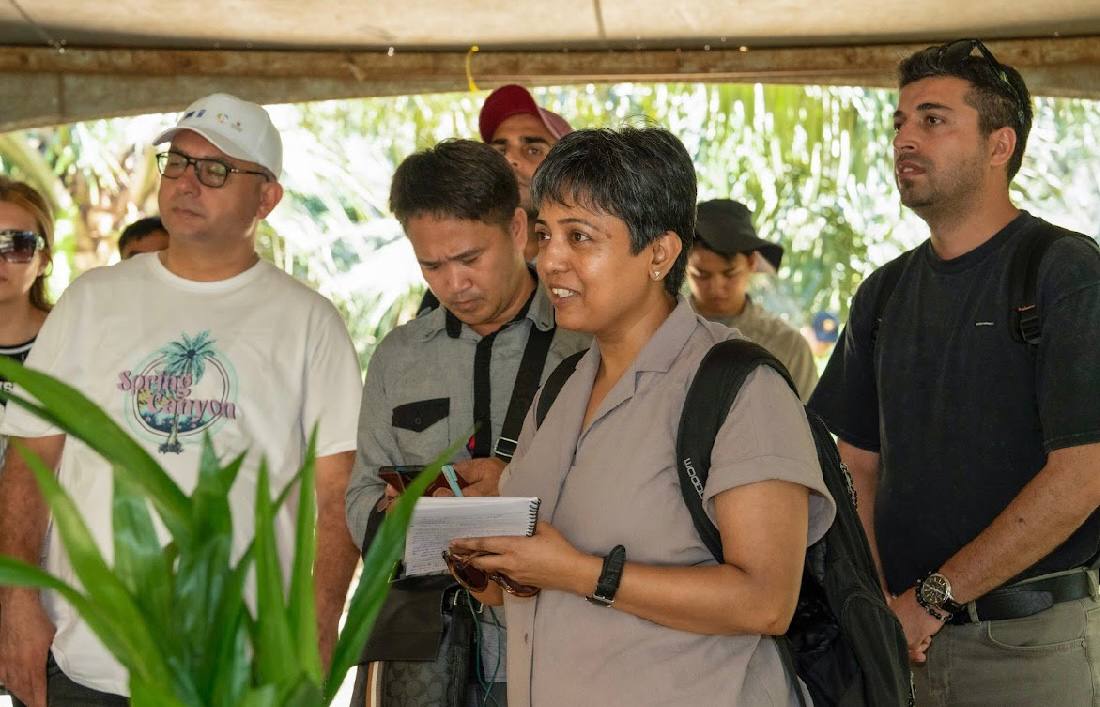Malaysian organization Wild Asia is reforming palm agriculture through regenerative practices.
"Our goal is to make palm oil production truly sustainable—not just by meeting RSPO requirements, but in a real way, without dependence on external resources," emphasizes Peter Cheng, Chief Operating Officer of Wild Asia.
According to Wild Asia, sustainability is not just about limiting fertilizer use or implementing standards. It’s a deep transformation of agriculture, where a farm can operate autonomously—processing its own waste, restoring the soil, and bringing it back to health. Wild Asia trains farmers not only in “better management” but also promotes more progressive principles: organic farming and regenerative agriculture.
"We want farmers to become so self-sufficient that they no longer need outside assistance," explains a project manager. Wild Asia’s principles help restore soil, reduce dependency on agrochemicals, and ensure profitability for smallholders at the same time.
In the state of Sabah (Borneo, Malaysia) alone, there are more than 30,000 licensed small-scale palm oil producers. For individuals, certification is a difficult path. That’s why Wild Asia uses a group model.
"When we come into a community, we gather everyone and say: if you join us, certification will be easier and won’t cost you anything. All it takes is changing a few practices on your farm," says Peter. The training covers a wide range of topics—from agroecological practices to the use of personal protective equipment, which is often provided with support from the Malaysian Palm Oil Council or other partners.
Palm oil is often criticized for driving deforestation. But Wild Asia reminds us that nearly all of agricultural history is a story of deforestation.
"Look at the seven biggest agricultural commodities responsible for deforestation: livestock, palm oil, soy, cocoa, rubber, coffee, and wood fiber. We’re not justifying it, but we want a fair perspective," Peter emphasizes. Wild Asia also highlights the historical context: colonization, timber extraction, and rubber plantations. The current state of the land is the result of decades of transformation.
Wild Asia has 51 full-time employees—41% of whom are women—and 15 contractors. The annual turnover ranges from 1 to 1.5 million Malaysian ringgit (approximately $235,000–$350,000 USD). But despite this scale, the organization doesn’t employ a single person with an agricultural degree.
"This is a deliberate choice. Because it's almost impossible to change the mindset of an agronomist trained under the old 'chemicals are the answer' curriculum. We need people who are ready to see things differently," notes Wild Asia’s founder.
Today, Wild Asia is working toward producing genuinely organic palm oil. But it’s a challenging journey: the entire supply chain—from field to processing—must meet the standards. "We prefer to talk about regenerative farming. Our goal is not just to grow plants, but to restore soil health," summarizes a Wild Asia representative. The organization doesn’t just lead farmers toward certification; it also builds connections throughout the supply chain—with mills, processors, brands, and ultimately, consumers.














